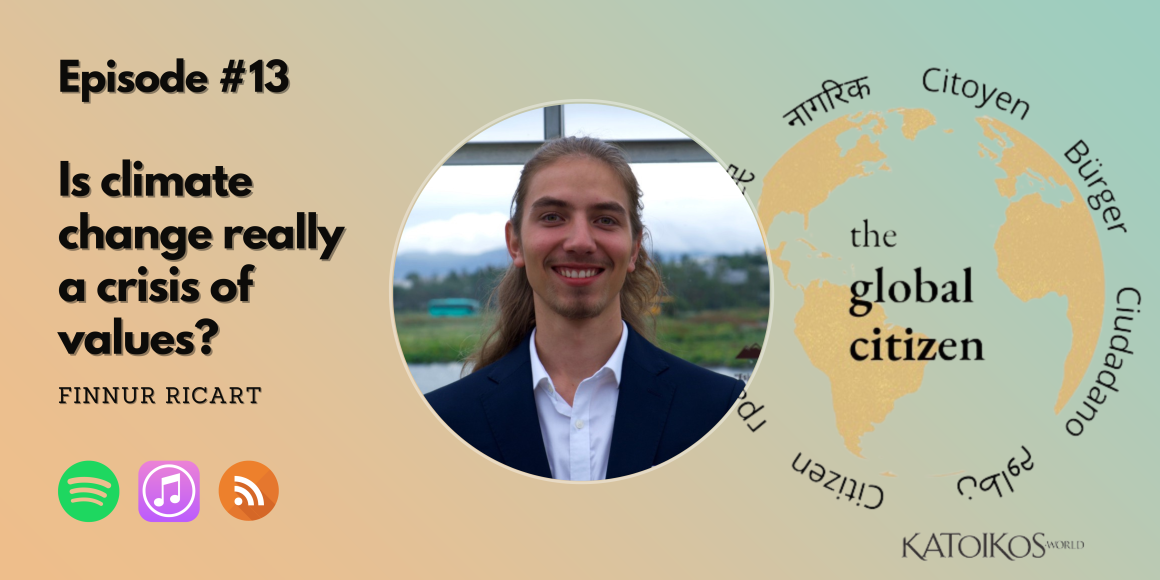The planet is on fire metaphorically (and unfortunately, quite often literally). As a young human in their mid-20s, I’ve slowly and painfully learned, as I’m transitioning into adulthood, that the world I’m living in, and one day maybe my children, is on a downhill spiral of environmental degradation and that increasingly tougher times are ahead. The causes of this might be simple to point our fingers at – namely, destruction of the environment, exploitation of natural resources past their breaking point, and radical disruption of very fragile planetary and biological systems. However, if we want to get out of this mess and stay out of it, it is important that we understand exactly why we have brought ourselves to this point of environmental breakdown in the first place.
My guest, Finnur, thinks – and in my opinion, very rightly so – that the core of the climate crisis is related to our values as a society. It might be the case that the pillars upon which we base our human existence on this planet at this point in time, which are predominantly values like growth, expansion, individualism, and consumption, are fundamentally incompatible with a planet with finite resources and extremely delicate ecosystems. Maybe the solution for climate change doesn’t only lie in our technological capacities but might also require that we rethink our relationship with life and nature in general.
Finnur Ricart is Chairperson of the Icelandic Young Environmentalist Association and Icelandic UN Youth Delegate on Climate Change. He’s in his early twenties, but he’s already achieved so much, and from what I can tell, he’s just getting started. Our conversation covered a range of topics, like the Conference of the Parties of the UNFCCC, which he attended as a youth delegate for Iceland, as well as in the role of representative of his organization, the Icelandic Young Environmentalist Association. Finnur gave me a comprehensive, first-hand account of what it’s really like to attend the conference of the parties, that absolutely massive political forum, and especially what it’s like to be there as a youth delegate, so we talked a lot about what kind of impact the youth has on the diplomatic procedures of the conference.
Of course, as I mentioned above, we also talked a lot about climate change being, at its core, a crisis of values. I’m very grateful that I got to hear his perspective on all of these things and even more grateful that I get to share them on the podcast.



